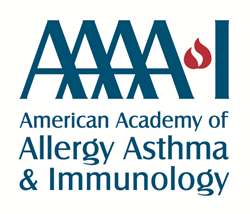
Corticosteroid and antibiotic prescriptions are a surrogate for rates of upper and lower respiratory exacerbations in asthmatic patients. By comparing rates of use across the three time periods, we were able to evaluate the changing behavior of COVID-19 in asthmatics.
MILWAUKEE (PRWEB)
February 14, 2023
Researchers have found prescription pattern changes during the Delta and Omicron waves of COVID-19, specifically when it comes to corticosteroids and antibiotics for patients with asthma. These findings will be presented at the 2023 Annual Meeting of the American Academy of Allergy, Asthma & Immunology (AAAAI).
The impact of different COVID-19 variants on patients with asthma is not well known, though the Alpha variant did not appear to increase the disease burden of asthmatic patients. To see if that has remained the case, researchers compared the healthcare burden in asthma patients across three time periods, corresponding to the Alpha, Delta, and Omicron variants. “To do this, we compared systemic corticosteroid and antibiotic prescriptions,” Elizabeth A. Kudlaty, MD, primary author of the study explained. “Corticosteroid and antibiotic prescriptions are a surrogate for rates of upper and lower respiratory exacerbations in asthmatic patients. By comparing rates of use across the three time periods, we were able to evaluate the changing behavior of COVID-19 in asthmatics.”
A computer algorithm was used to evaluate the medical records of asthmatic patients with PCR-confirmed COVID-19 across three time periods associated with Alpha, Delta, and Omicron. Researchers compared prescription rates of systemic corticosteroids and antibiotics in asthmatics during COVID-19 infection to look for trends or changes.
In total, they found 1,168 Alpha, 862 Delta, and 3,166 Omicron COVID-19 cases among asthmatic patients. Among them, 38.4% received systemic corticosteroid prescriptions during the Alpha wave, compared to 79.3% during the Delta wave and 73.8% during the Omicron wave. Antibiotic prescription rates were higher for asthmatics during Omicron, albeit with a smaller increase at 56.2% of cases compared to Alpha (50.9%) and Delta (52.7%). The proportion of patients treated with systemic corticosteroids was higher in Delta and Omicron waves as compared to Alpha. The study did not capture all asthmatics, rather those sick enough to seek care and receive PCR testing to confirm diagnosis of COVID-19. The rate of systemic corticosteroid use during Alpha may reflect a combination of decrease rate of asthma exacerbations, as well as lower prescriptions due to the unknown impact of corticosteroids during the early days of the pandemic. A limitation of this study is that a smaller number of asthmatics during Delta sought care for COVID-19, likely reflecting use of at home rapid testing and thus limiting the conclusion.
“COVID-19 initially was not associated with asthma exacerbations, but we’re seeing an increase with the Omicron and Delta variants,” said Dr. Kudlaty. “It is essential that healthcare providers keep this in mind when they’re seeing patients and providing treatment.”
Visit aaaai.org to learn more about COVID-19. Research presented at the AAAAI Annual Meeting, February 24-27 in San Antonio, Texas, is published in an online supplement to The Journal of Allergy and Clinical Immunology.
The American Academy of Allergy, Asthma & Immunology (AAAAI) is the leading membership organization of more than 7,100 allergists, asthma specialists, clinical immunologists, allied health professionals and others with a special interest in the research and treatment of allergic and immunologic diseases. The AAAAI is the go-to resource for patients living with allergies, asthma and immune deficiency disorders. Established in 1943, the AAAAI has more than 7,100 members in the United States, Canada and 72 other countries. The AAAAI’s Find an Allergist/Immunologist service is a trusted resource to help you find a specialist close to home.
Share article on social media or email:

